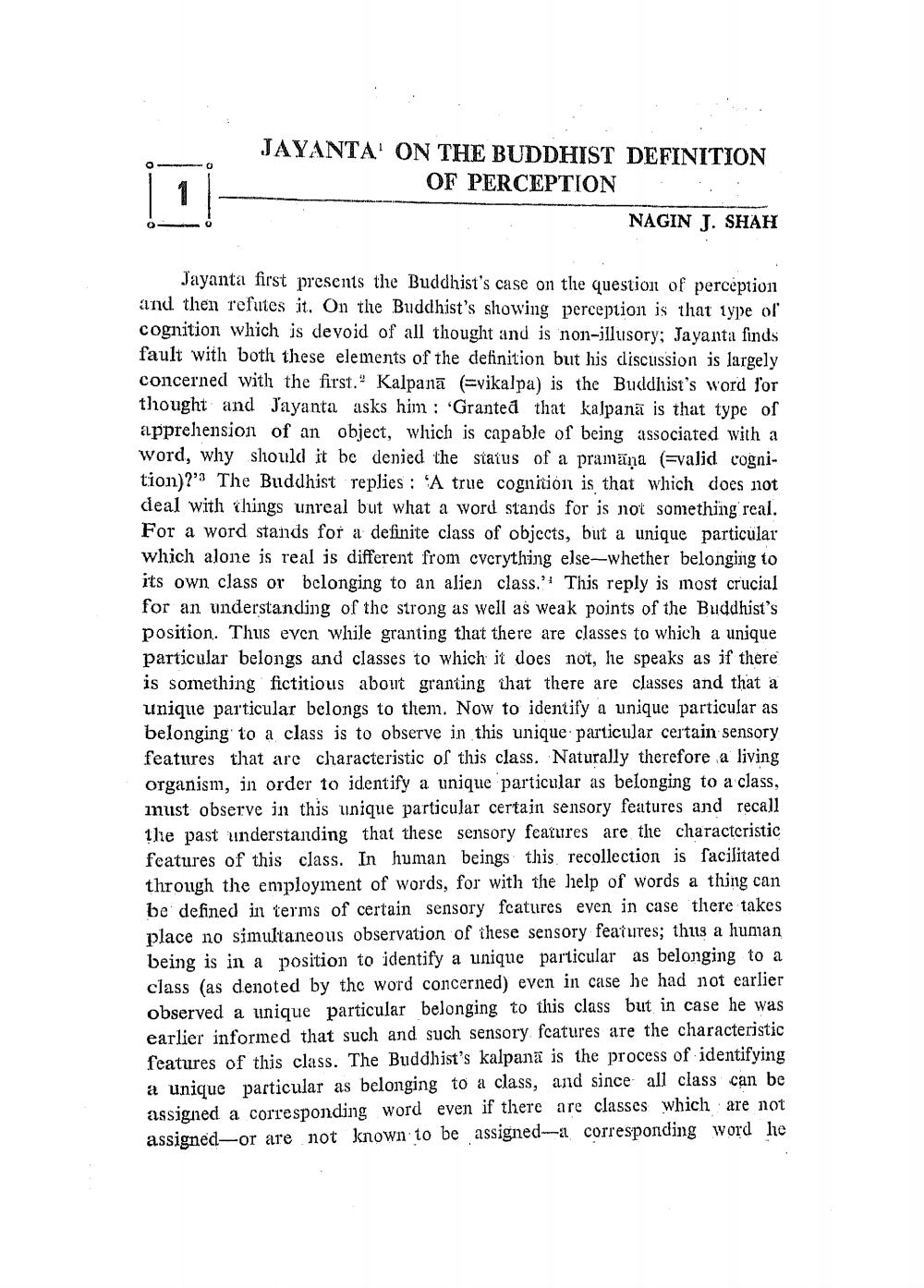________________
JAYANTA' ON THE BUDDHIST DEFINITION OF PERCEPTION
NAGIN J. SHAH
O
Jayanta first presents the Buddhist's case on the question of perception and then refutes it. On the Buddhist's showing perception is that type of cognition which is devoid of all thought and is non-illusory; Jayanta finds fault with both these elements of the definition but his discussion is largely concerned with the first." Kalpanā (=vikalpa) is the Buddhist's word for thought and Jayanta asks him : Granted that kalpana is that type of apprehension of an object, which is capable of being associated with a word, why should it be denied the status of a pramäņa (=valid cognition)?'' The Buddhist replies : 'A true cognition is that which does not deal with things unreal but what a word stands for is not something real. For a word stands for a definite class of objects, but a unique particular which alone is real is different from cverything else-whether belonging to its own class or belonging to an alien class." This reply is most crucial for an understanding of the strong as well as weak points of the Buddhist's position. Thus even while granting that there are classes to which a unique particular belongs and classes to which it does not, he speaks as if there is something fictitious about granting that there are classes and that a unique particular belongs to them. Now to identify a unique particular as belonging to a class is to observe in this unique particular certain sensory features that are characteristic of this class. Naturally therefore a living organism, in order to identify a unique particular as belonging to a class, inust observe in this unique particular certain sensory features and recall 1he past understanding that these sensory features are the characteristic features of this class. In human beings this recollection is facilitated through the employinent of words, for with the help of words a thing can be defined in terms of certain sensory features even in case there takes place no simultaneous observation of these sensory features; thus a human being is in a position to identify a unique particular as belonging to a class (as denoted by the word concerned) even in case he had not earlier observed a unique particular belonging to this class but in case he was earlier informed that such and such sensory features are the characteristic features of this class. The Buddhist's kalpana is the process of identifying a unique particular as belonging to a class, and since all class can be assigned a corresponding word even if there are classes which are not assigned-or are not known to be assignedma corresponding word he




